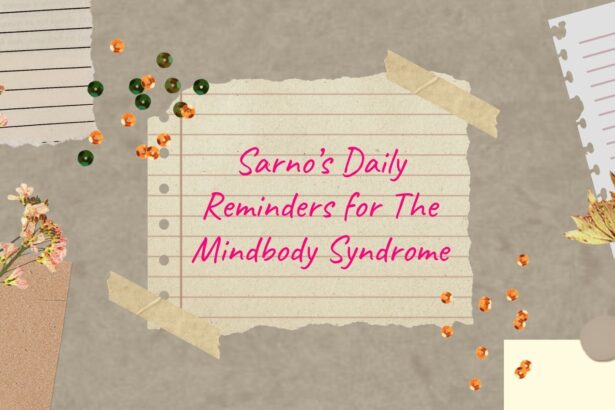Gabor Maté and How Stress Manifests
The silent toll of hidden stress is often overlooked, yet it shapes our health in ways we may not immediately recognise. Have you ever noticed how your body reacts when you suppress things for too long? Perhaps a lingering headache, a tight chest, or the beginning of chronic fatigue? Gabor Maté’s work explores the profound connection between the repression of stressors and chronic illness, showing how the body steps in to carry the burden when emotions remain unprocessed. He argues that when we fail to acknowledge and process things fully, the body speaks for us — sometimes in the form of pain, autoimmune conditions, or other serious health issues.
Maté’s research highlights how hidden stressors, unprocessed emotional pain, and our personality traits shape our long-term health. He shares that those who have experienced childhood adversity or have a tendency toward chronic people-pleasing, perfectionism, or emotional suppression are more vulnerable to conditions like fibromyalgia, multiple sclerosis, rheumatoid arthritis, and other chronic illnesses.
Maté’s insights extend beyond any single diagnosis, offering a new way to understand chronic conditions. His work suggests that chronic stress patterns are not just contributors to illness — they are woven into the very fabric of how we experience our health over time. Recognising these patterns is not about assigning blame but about empowering individuals with a deeper understanding of how their mind-body system responds to hidden stressors.
Learn to read symptoms not only as problems to be overcome but as messages to be heeded. — Gabor Maté
The Science of Suppression and Illness
Maté’s work aligns with the growing field of psychoneuroimmunology, which examines how stress and emotional patterns shape the nervous system, immune function, and long-term health. Chronic stress triggers the release of stress hormones like cortisol and adrenaline, which, when sustained over time, can contribute to inflammation, immune dysfunction, and neurological imbalances.
Many of Maté’s case studies illustrate how individuals who neglect their own needs, or continuously override their mindbody’s signals often develop serious health conditions. This is particularly relevant for those with chronic illness, as traditional medical approaches often fail to address the underlying root causes.
This perspective challenges conventional medicine’s tendency to separate the mind from the body, focusing only on physical symptoms. Maté’s research offers a more integrated view—one that considers the long-term impact of emotional patterns on immune function, pain responses, and chronic illness development. This shift in understanding is vital for those seeking deeper healing beyond symptom management.
A Thought Leader in Mind-Body Healing
Gabor Maté is widely recognized as one of the most influential voices in the field of mind-body health. His work has revolutionised how we understand chronic illness, addiction, and mental health — not as isolated medical conditions, but as deeply interconnected responses to stress, past experiences, and the ways we have adapted to survive. With decades of experience as a physician, speaker, and author, Maté has helped shift the conversation from symptom management to uncovering patterns and changing behaviours, highlighting the role of childhood adversity, and societal pressures in shaping our long-term health.
Illness is not a random event but a process that arises from an ongoing dynamic between our bodies, our minds, and our experiences. — Gabor Maté.
Here is an introduction to some of his best known work:
- When the Body Says No: The Cost of Hidden Stress examines the personality traits and coping mechanisms that can predispose individuals to autoimmune diseases, cancer, and other chronic conditions.
- In the Realm of Hungry Ghosts – Explores addiction not as a choice or a failure of willpower, but as a coping mechanism rooted in unresolved emotional pain.
- Scattered Minds – Examines the link between ADHD and early childhood development, explaining how nervous system dysregulation and unmet needs contribute to attention and regulation issues.
- The Myth of Normal – Challenges cultural narratives around health, suggesting that modern society fosters disconnection, leading to widespread suffering.
Rewriting Your Story: Healing Beyond the Patterns
Recognising the emotional roots of illness is only the first step—true healing happens when we take action. If you have identified yourself in the patterns Maté describes, such as chronic people-pleasing, self-criticism, or emotional suppression, it’s time to ask: What would change if I no longer carried these patterns?
Healing involves learning to set boundaries, express emotions safely, and rewire the nervous system to respond differently to stress. Through self-awareness and intentional practices, you can begin to shift from survival mode to a place of deeper self-connection and well-being.
If you recognise yourself in these patterns and want to explore these ideas further, you don’t need to read an entire book to gain meaningful insight. I’ve distilled the key teachings of When the Body Says No into an accessible book summary for you, highlighting Maté’s core concepts and how they relate to this healing journey.
This is just the beginning of something transformative. Keep going, with kindness.
Next Steps: Integrating These Insights
Healing happens through awareness and repetition. Take your time to absorb these insights and allow them to settle.
💗 Explore deeper insights in When the Body Says No, if you would like to. If this topic resonates with you, you might find this book summary helpful: Read the book summary of Gabor Maté’s When The Body Says No here
💗 Try a somatic guided healing practice to help shift out of stress responses and into ease: Click here for A Guided Healing Practice
With love and belief in your journey,
Amari 💗





